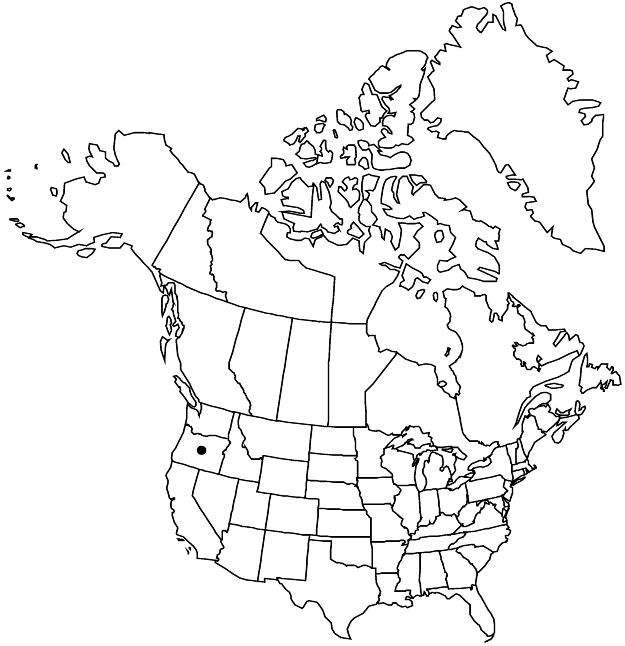Drymocallis ashlandica
Monogr. N. Amer. Potentilleae, 200. 1898.
Caudex branches short. Stems tufted, (1–) 2–5 dm; base 2–3 mm diam., ± densely septate-glandular. Leaves moderately to ± densely hairy; basal 6–16 cm, leaflet pairs 2–3 (–4); terminal leaflet broadly obovate, 1.5–4 × 1–3 cm, teeth ± double, 7–12 per side, apex rounded; cauline 0–2, moderately developed, leaflet pairs 2–3. Inflorescences 5–15 (–20) -flowered, not leafy, congested to deeply branched, 1/10–2/3 or less of stem, usually narrow, rarely ± wide, branch angles (5–) 10–20 (–30) °. Pedicels 2–10 (proximal to 30) mm, sparsely to moderately short-hairy, predominantly septate-glandular, often obscuring other vestiture. Flowers opening widely; epicalyx bractlets linear to broadly elliptic, 3–5 × 1–2 mm; sepals spreading, 5–7 (–9) mm, apex acute; petals overlapping, spreading, light yellow, broadly obovate, 5–9 × 4–7 mm, equal to or longer than sepals; filaments 1.5–5 mm, anthers 0.7–1.2 mm; styles ± thickened, 1 mm. Achenes light-brown, 1 mm.
Phenology: Flowering Jun–Aug.
Habitat: Meadows, roadsides, sandy shorelines
Elevation: 500–2000 m
Discussion
The name Potentilla glandulosa subsp. ashlandica was misapplied to Drymocallis lactea var. austiniae (B. Ertter 1993); as circumscribed here, D. ashlandica is a poorly known species restricted to the Cascade and Siskiyou ranges of southwestern Oregon. It very likely also occurs in adjacent California; no collections from there are known. Drymocallis ashlandica differs from most sympatric populations of D. lactea var. austiniae and resembles D. pseudorupestris in its densely glandular inflorescences, which tend to be more densely congested and/or narrower than those of the other two species.
Drymocallis ashlandica was described by Greene as Potentilla ashlandica, and by Howell as P. ciliata (a later homonym), both based on a collection by Howell from the Siskiyou Mountains near Ashland, Oregon. The circumscription here, which matches that of D. D. Keck (in J. Clausen et al. 1940) and M. E. Peck (1961), encompasses populations from near Oregon Caves and Ashland in the Siskiyou Mountains to near McKenzie Bridge, Lane County, and Sparks Lake, Deschutes County. It is currently known from relatively few collections, mostly from the Crater Lake area, and may prove to be of conservation concern.
Selected References
None.
Lower Taxa
"thin" is not a number."wide" is not a number."dm" is not declared as a valid unit of measurement for this property."dm" is not declared as a valid unit of measurement for this property.
